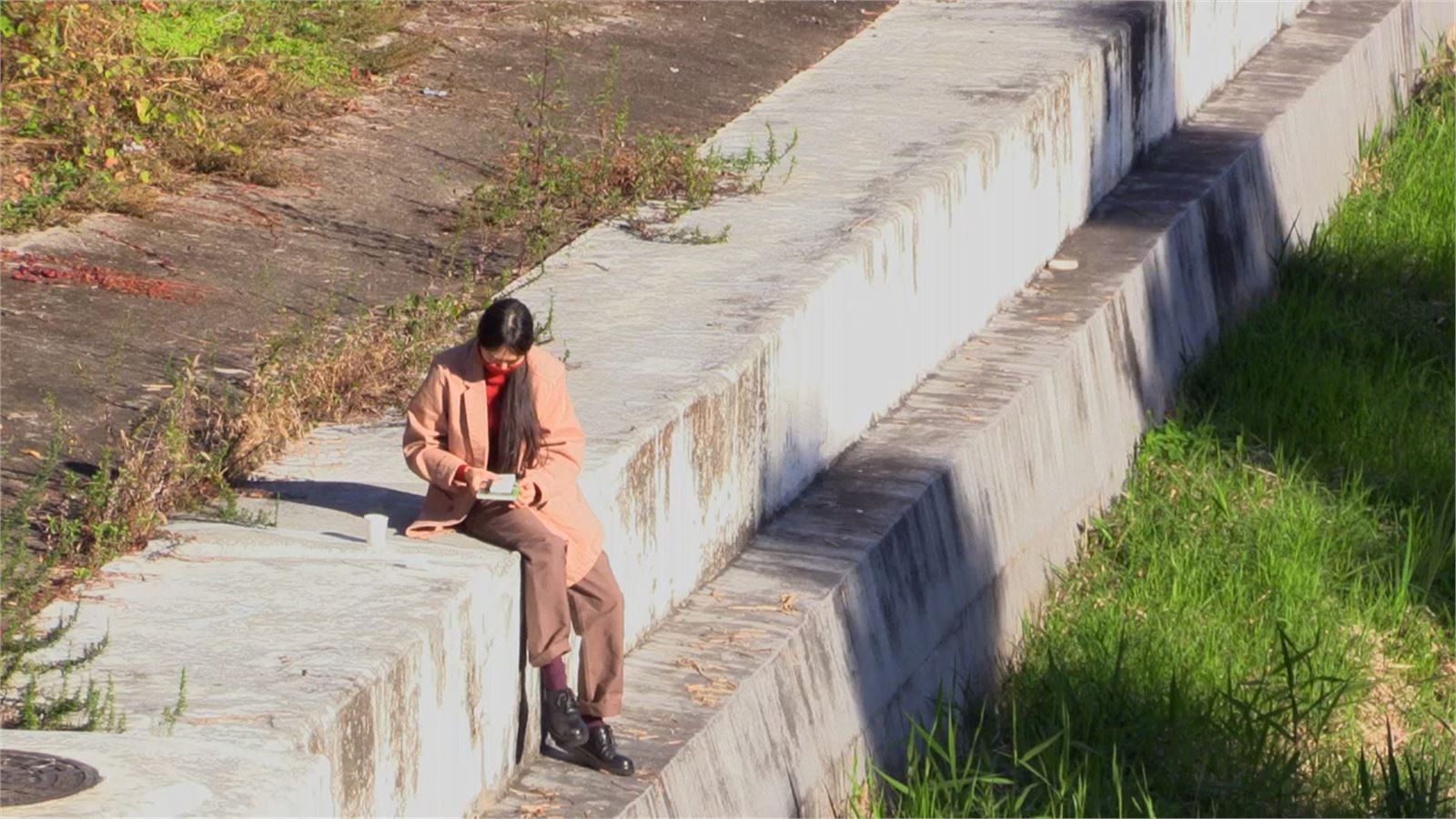TIFF24: By the Stream
Is By the Stream better than Hong Sang-soo’s previous films, or am I simply becoming more fond of his low-fi storytelling approach? Whatever the case, By the Stream is a pleasure, an easygoing arthouse piece that lulls you in with quiet conversations over soju and then surprises you with its insightful comments on art and the reasons we make it.
The latest work by prolific South Korean filmmaker Hong Sang-soo—he’s best known for Right Now, Wrong Then from 2015—By the Stream follows artist and lecturer Jeonim (Kim Min-hee), who works at a women’s university in Seoul. Her students are putting on a short theatrical sketch during the university’s yearly skit festival, but after a minor scandal causes the director to drop out, she invites her uncle, Chu Sieon (Kwon Hae-hyo), to take over. Chu was once a respected stage actor and director, but he now lives a quiet life as a bookstore owner. The short sketch is his chance to relive his past on the stage and connect with some young students, much as he did 40 years ago, when he was a young director doing guest work for the festival.
It also gives him an opportunity to drink soju and flirt with Jeonim’s supervisor, Jeong (Cho Yun-hee). Hong movies often have weighty thematic interests about art and relationships, but they’re extremely laid back in form and content. Characters eat barbeque and drink copious amounts of soju and beer and mostly sit around, chatting about their lives. The alcohol and the circumstances lead them to reveal more of themselves as the conversations go on (as is often the case in life). By the Stream has all these trademarks of Hong, whose specific mise-en-scene involves long, unbroken takes at tables, and the occasional pan or zoom. He doesn’t ever shoot handheld and he doesn’t ever move the camera. The average viewer would likely find this approach excruciating, but if you switch onto his wavelength, it can be comforting and engrossing. In By the Stream, you witness the conversations play out in real time, like you’re at the table with Jeonim, Chu, and Jeong. The patience Hong demands from his viewers pays off as it invests us in the mundane realities of these characters.
Two key scenes showcase the power of such a distinct stylistic approach. The first is the performance of the skit that Chu has written and directed. The four young women performing the scene are not in the drama program, but they’re encouraged by Chu to play things naturally. The scene is a slice-of-life of four sisters sitting on the floor around a table, eating instant ramen. They ask a few questions of each other and imply that they’re short on funds, but mostly, they eat, and we watch. It’s boring, but riveting, not because of the actual scene, but because we know these young women have taken Chu’s words to heart and are losing themselves in the moment, inhabiting the stage as a real space. They’re truly acting.
The other scene follows shortly thereafter as Chu takes the young women out to dinner to celebrate and they decompress about the skit—which was widely panned—and about their own uncertainty over their lives. They’re first effusive about each other’s work and proud of their efforts, but soon, they grow bitter about how poorly it was received by others. Chu ponders his own professional shortcomings before inviting the girls to recite poetry about themselves. The girls end up reciting freeform poems about their hopes and dreams, but some of them turn to self-loathing statements that reveal their own insecurities. They end up in tears and Chu praises their honesty. And we just watch this unbroken sequence, from a wide angle with no cuts, of actors being supposedly naturalistic and bearing their insecurities and discussing art, and we’re completely absorbed. At that moment, we think we’re witnessing this intimate scene and are a part of the conversation, but we’re actually just falling for Hong’s stylistic approach, the very kind that Chu has championed and coaxed out these young ladies.
The naturalism is artifice. The still frame and long takes are stylization. By the Stream is self-referential—perhaps even autofiction—but it’s still a movie, written by Hong and crafted along with the actors. It seems real, in form and content, and that’s what makes it so remarkable.
8 out of 10
By the Stream (2024, South Korea)
Written and directed by Hong Sang-soo; starring Kim Min-hee, Kwon Hae-hyo, Cho Yun-hee, Ha Seong-guk.



Nia DaCosta’s sequel to 28 Years Later pits two competing theologies of death against each other.